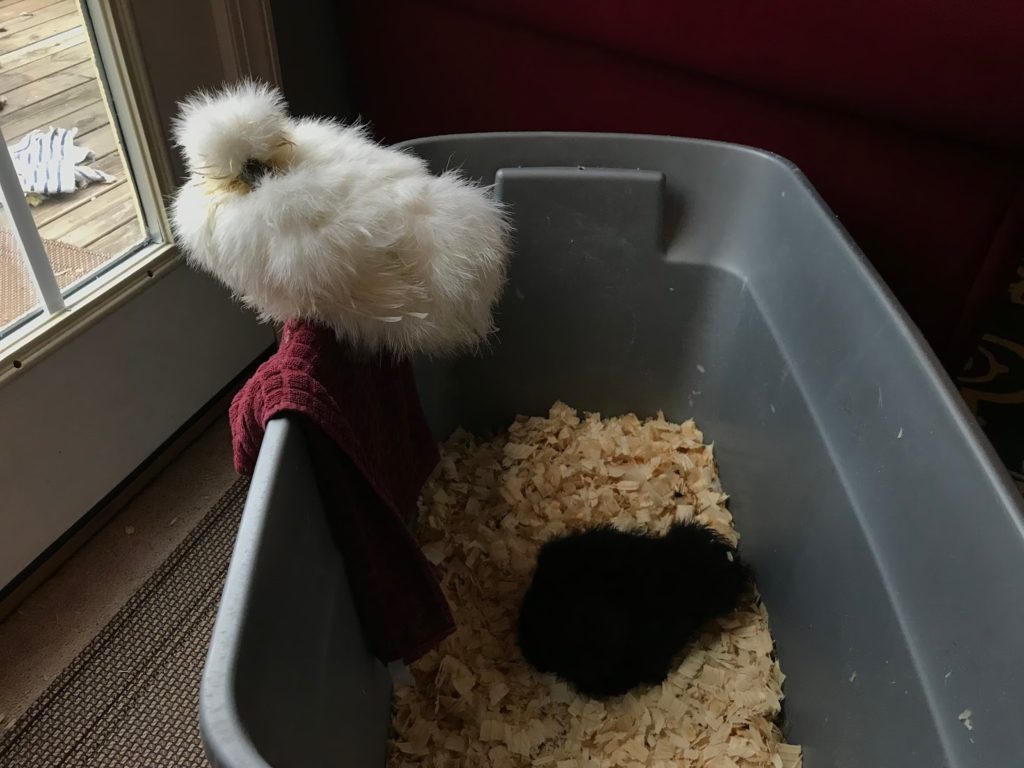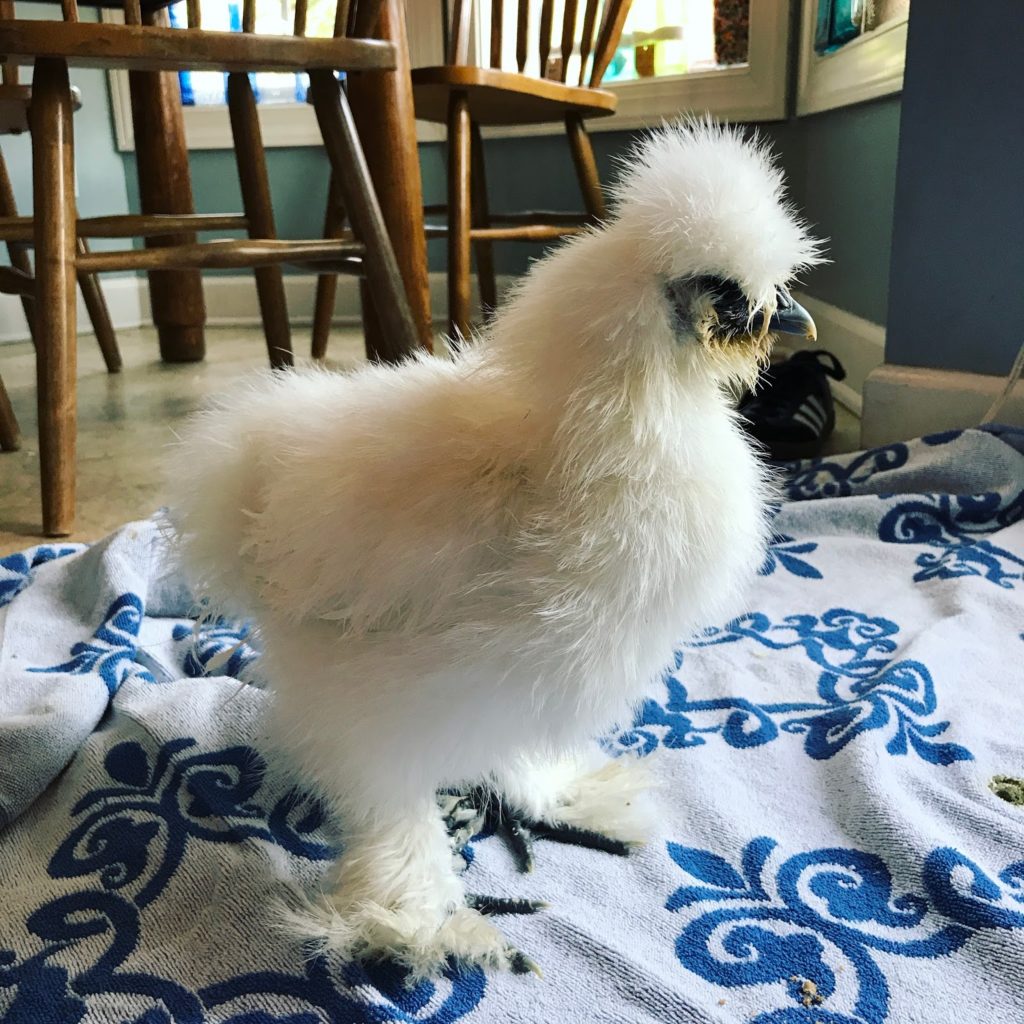Uncategorized
One Silkie Down
As a newbie chicken mama, I’ve been very lucky to not face tragedy for over eight months. Though we live in downtown, we have our share a predators — hawks, foxes and raccoons are all regularly spotted. Our coop and run are pretty well protected, but I let the ladies free range for extended time most days. Typically if I am home, the birds are in the yard. Though they tend to stay in our backyard, sometimes I have to hunt them down and chase them out of neighbor’s yards. We really should get a fence, but talking to my back neighbor, I think he’d rather have the occasional chicken in his yard than a fence. Anyhow, our birds have been injury and predator free for the spring, summer and fall.
And then I decided we needed two more Silkies. Let me start by admitting that I made several mistakes in this addition. First, early December was too late in the year to add these 8 week old chicks. We ran into a cold snap his this week, and the new birds weren’t comfortably integrated into the flock yet or figured out how to move from the run back into the coop. We had just moved their A-frame into the coop and hadn’t yet set up a replacement hiding space in the run. Second, it is very challenging to add younger and smaller chickens to an established flock. It can definitely be done, but with the challenge of the cold weather, there wasn’t enough time to take it slowly and do it right.
So sadly, we rang in the new year bidding farewell to little Vader. The Silkie chicks had seemed to be doing okay, but we noticed a lice infestation on Vader and treated both the chicks with diotomaceous earth. Two days later, during a cold day (19 degF) one of the Tweedles attacked Vader in the run, and both little chicks were laying on their bellies by the time I got to them. There were no pecking wounds, but the chicks were very lethargic, floppy even, and both still had lice. We treated them with poultry dust with permethrin which killed the lice, but we were never able to loosen the egg sacs surrounding the shafts of each of Vader’s feathers on her neck. I tried bathing here with a little Dawn soap and even tried coconut oil, but the suckers were super-glued to her feathers. There was one day during which Vader seemed to be improving while Betty was still turning her head like the room was spinning, but then Vader took a turn for the worse while Betty began to improve. After three days of being fed by a syringe of mashed up chick feed, yogurt, molasses, water and sometimes a pinch of Gatorade powder, and after a treatment of VetRx, Vader died on a fuzzy hand towel on our living room floor.
I’m not sure exactly what caused the illness and following death of Vader. I was feeling really bad about putting them out in the run when it was so cold, but it was sunny and they seemed happy to be out and pecking. Chickens, and these were “coop ready” can handle pretty cold temps. I have read that Silkies are cold hardy, but I imagine that chicks – and stressed chicks at that – are not as cold hardy as adults. All I know is they were pecking around one moment and then another they were laid out in the run. Between the fear of the adult hens and the lice, Vader and Betty were definitely compromised. Lice and mites can kill a chicken and can be more deadly to young birds. Vader was heavily infested, and looking back on our short two weeks with her, she was always slower and maybe even slightly lethargic. Betty was far less docile and even seemed to challenge Ruby, the second in command. We are hoping Betty will continue to improve, but I am bracing for the worst. Betty is now walking around, chirping again but still not eating or drinking on her own.
The rest of the flock has done fine during this cold snap. I just have to run out and give them fresh warm water a couple times a day as the water buckets keep freezing. I go back and forth on whether to run a heat lamp in the coop. They really don’t need the added heat, but it’s also nice that the water doesn’t freeze as badly overnight while running it. Tonight the low is 14 degF, so I have turned the lamp on again. If Betty recoups, we will have to figure out how to get her integrated and safe and warm. One step at a time!

